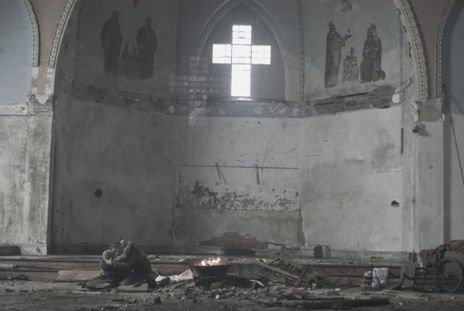
Don’t miss Joseph Susanka’s excellent, insightful essay The Brutality of Grace, wherein he looks at the books (and films) on Cormac McCarthy:
Throughout much of her life, Flannery O’Connor struggled against what she perceived as dangerous and excessive sentimentality among her readers, defending her stories against accusations of violence, brutality, and “gothic grotesqueness.” For her, violence was an essential part of her message, for “to expect too much is to have a sentimental view of life and this is a softness that ends in bitterness.” Responding to her critics, O’Connor made an important point: “Our age not only does not have a very sharp eye for the almost imperceptible intrusions of grace, it no longer has much feeling for the nature of the violences which precede and follow them.”
Nowadays, artists seem to struggle far less with depicting “the nature of the violences” than one might wish; for every modern-day sentimentalist, there is a corresponding misanthrope. But the inability to recognize the essential connection between these moments of grace and the violence that surrounds them is as persistent as ever.
One modern-day artist making that connection may be Cormac McCarthy, the reclusive author who is considered by many to be America’s greatest living writer. A closer examination of the three cinematic adaptations based on his books — All the Pretty Horses, No Country for Old Men, and The Road — reveals him to be as focused on the questions of nature, violence, and grace as O’Connor was, though he has been much less inclined to self-explanation than was she.
Interestingly, the three films made from his books thus far have been released chronologically. All the Pretty Horses was written in 1992 and released in 2000; No Country for Old Men in 2005 and 2007; and The Road in 2006 and 2009. The chronology is helpful, as McCarthy’s thinking on the problem of violence and grace grows progressively clearer with each work. As a result, All the Pretty Horses, adapted from the first volume of McCarthy’s Border Trilogy, is the perfect starting point — both because it is the least likely to be considered a great film, and because it feels like the work of a man as yet unclear about how these moments actually fit together.
Give yourself a thought-provoking treat. Read the whole thing.











